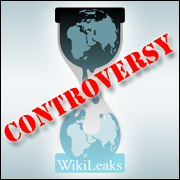
Despite talk of dire consequences for U.S. foreign policy and military intelligence, online publisher Wikileaks Sunday began releasing more than 250,000 leaked cables between 274 worldwide embassies and the U.S. State Department.
Wikileaks founder Julian Assange calls the leaked cables “the largest set of confidential documents ever to be released into the public domain” on the organization’s website.
Designed to “give people around the world an unprecedented insight into the U.S. Government’s foreign activities,” the cables date from 1966 thru 2010. More than 15,000 of the leaked documents are classified “Secret.”
Tattle Tales
By turns tawdry, titillating, and telling, the cables report that Iran used ambulances to smuggle arms to the radical Lebanese group Hezbollah; that U.S. Secretary of State Hillary Clinton ordered subordinates to spy on foreign diplomats; that Saudi Arabian leaders were at once financing al Qaeda while urging the U.S. to bomb Iran; and that U.S. diplomats referred to Russian president Vladimir Putin as an “alpha dog” ruling a corrupt regime.
The leaks illustrate “the power of digital technology and Internet distribution to enhance the potential for whistle-blowing,” said Jonathan Askin, an Internet and telecommunications law professor at Brooklyn Law School.
“All it takes is a single copy and an index finger to one-click the information to the world,” he told TechNewsWorld.
Despite the controversy, the leaks aren’t powerful enough to change the foreign relations and intelligence landscape much, Jeffrey Berejikian, an international affairs professor at the University of Georgia, told TechNewsWorld.
“If one thing changes, it may be the relationship of intelligence gathering to diplomacy,” he explained. “Post 9-11, the Bush administration pushed the two together, pressuring diplomats to gather intelligence. But diplomats aren’t spies, and their intelligence gathering is likely to be de-emphasized in light of the Wikileaks revelations.”
Traitor or Trooper?
Reaction to the leaks has been mixed. Israeli officials, for instance, say they feel vindicated with Saudi Arabia’s support for strikes against Iran. However, condemnation is widespread.
“These leaks are as dangerous to the U.S. as a terrorist attack,” said Arthur Hulnick, an international relations associate professor at Boston University and author of Keeping Us Safe: Secret Intelligence and Homeland Security and Fixing the Spy Machine: Preparing American Intelligence for the 21st Century.
“Other countries will be reluctant to share intelligence with us, and diplomats will wonder why the U.S. can’t keep secrets,” Hulnick — who served for 28 years in the Central Intelligence Agency — told TechNewsWorld.
Equally mixed are opinions of Wikileaks’ Assange. In a letter to President Obama, New York Congressman Peter King wonders if Assange isn’t both traitor and terrorist. Daniel Ellsberg, who helped released the Pentagon Papers in 1971, has said in interviews that Assange is serving both democracy and the rule of law.
“Mr. Assange prides his release of these documents as a part of making democracy work. But the violation of secrecy that these WikiLeaks entail goes against the principles of our Constitution,” Michael Corgan, associate chair of the Boston University international relations department, told TechNewsWorld.
“Arguments for replacing the Articles of Confederation with our present Constitution had much to do with the ability to conduct foreign relations, as Alexander Hamilton put it, ‘with efficacy,'” said Corgan, a former professor of strategy and national security affairs at the U.S. Naval War College. “Mr. Assange doesn’t understand how the U.S. constitutional democracy was meant to work, and has ensured that we will not be trusted in our foreign relations efforts for a long time to come.”
October Surprises
Julian Assange shocked the world with the Afghan War Diaries in June and the Iraq War Logs in October, quickly establishing a worldwide reputation as an informant willing to go where no journalists had gone at least since Watergate.
Wikileaks called The Iraq War Logs — dated January 1, 2004, to December 31, 2009 (except for May 2004 and March 2009), “the largest classified military leak in history.” Its 391,832 reports detail a far higher number of casualties than ever previously reported: 109,032 — 66,081 of them civilian noncombatants.
For their high-profile concentration on U.S. foreign and military policy of late, Assange and Wikileaks are being labeled “anti-American” in many quarters. However, those labels may miss the mark.
Assange has leaked all manner of documents since founding Wikileaks in 2006, including details of a decision to assassinate Somali government officials; corruption in the family of former Kenyan leader Daniel arap Moi; confidential Scientology information; Sarah Palin’s hacked email account; Internet censorship in Thailand; and Climategate, email correspondence between climatologists from the University of East Anglia Climatic Research Unit that shed scientific doubt on the concept of global warming.
What’s more, U.S. intelligence may have aided and abetted Assange by screwing up.
“Why the expressions of shock and outrage?” asked William Keylor, who directs the Boston University International History Institute and who authored A World of Nations: The International Order Since 1945.
“If the U.S. government is unable to devise a reliable communication system that will ensure that diplomatic cables are read only by the restricted list of intended recipients, then we can expect a full and continuous publication of all such messages,” Keylor told TechNewsWorld.
Publication “is easy,” potential whistleblowers learn at Wikileaks.org, where they can upload “submissions” via “military-grade encryption protection.”
“We’ve come a long way since the Pentagon Papers and Deep Throat served as the greatest perceived threats to national secrets,” Brooklyn Law School’s Askin told TechNewsWorld. “Wikileaks is simply the latest sign that there has to be a new model of open governance. If it weren’t Julian Assange, someone else would have come along to harness the distributive power of the Internet.”



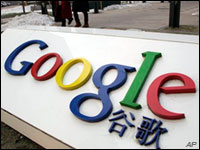
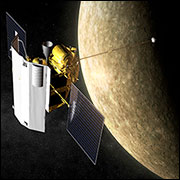

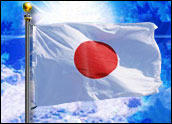


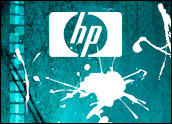
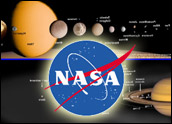











































Outta control! Wikileaks and their "transparency" crusade has climaxed. A Princeton prof thinks so, too, asking "How Much Transparency is Too Much?" http://www.project-syndicate.org/commentary/singer65/English
I AM 60 years old. What happened to civility? Now the press asks the President personal questions. All private affairs are made public and no one has discretion in the press anymore. They are all out for sensational headlines and money. Look at papparazzi today…disgusting. When JFK and Marilyn Monroe were having an affair…it was handled with dignity by the press and never discussed. Things have changed, and not for the better. While I believe in freedom of speech, I see no good coming out of the documents being released. They put us in a very bad position. I AM ashamed of Wikileaks. I think the US should not encourage them, but show disdain for their actions.